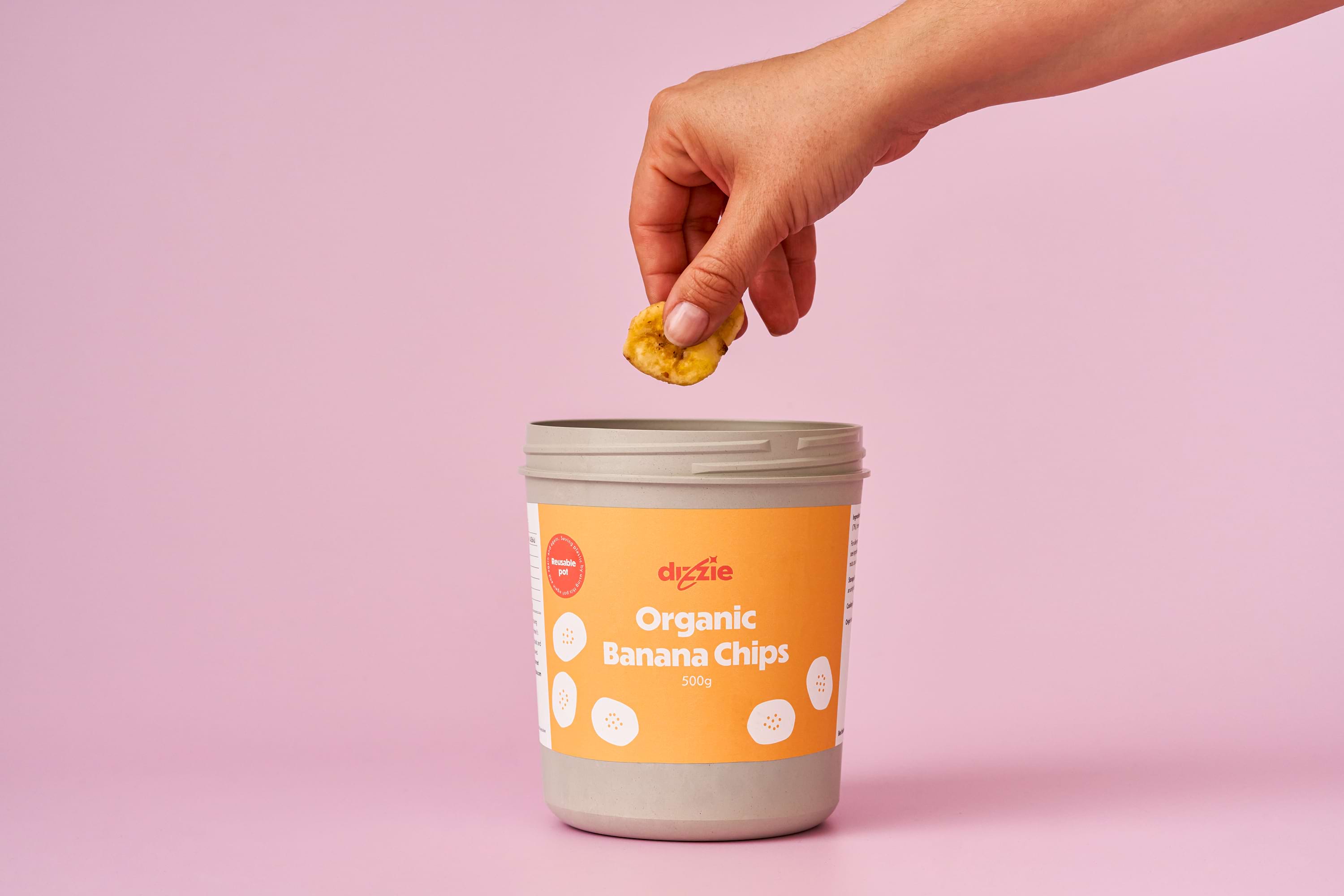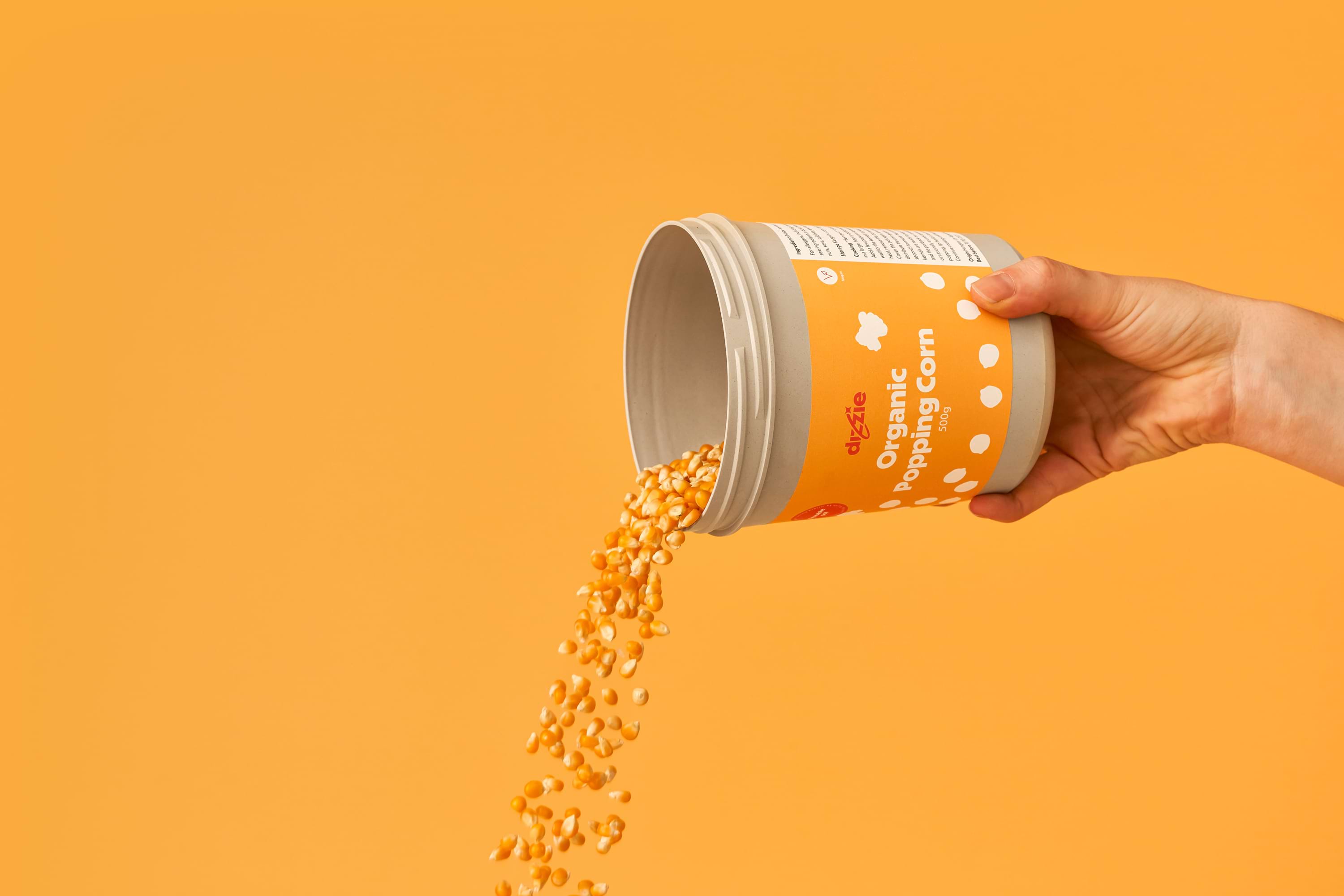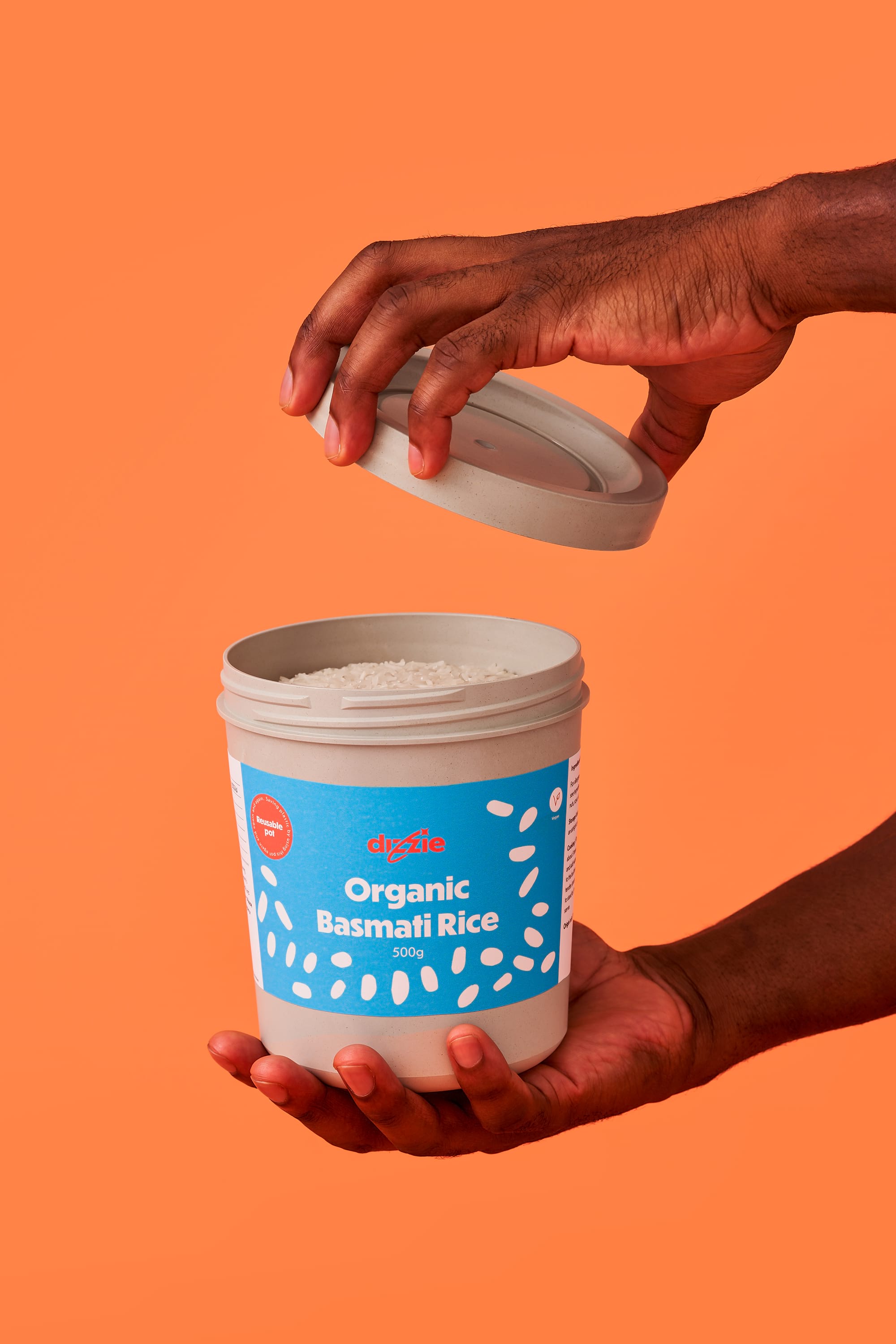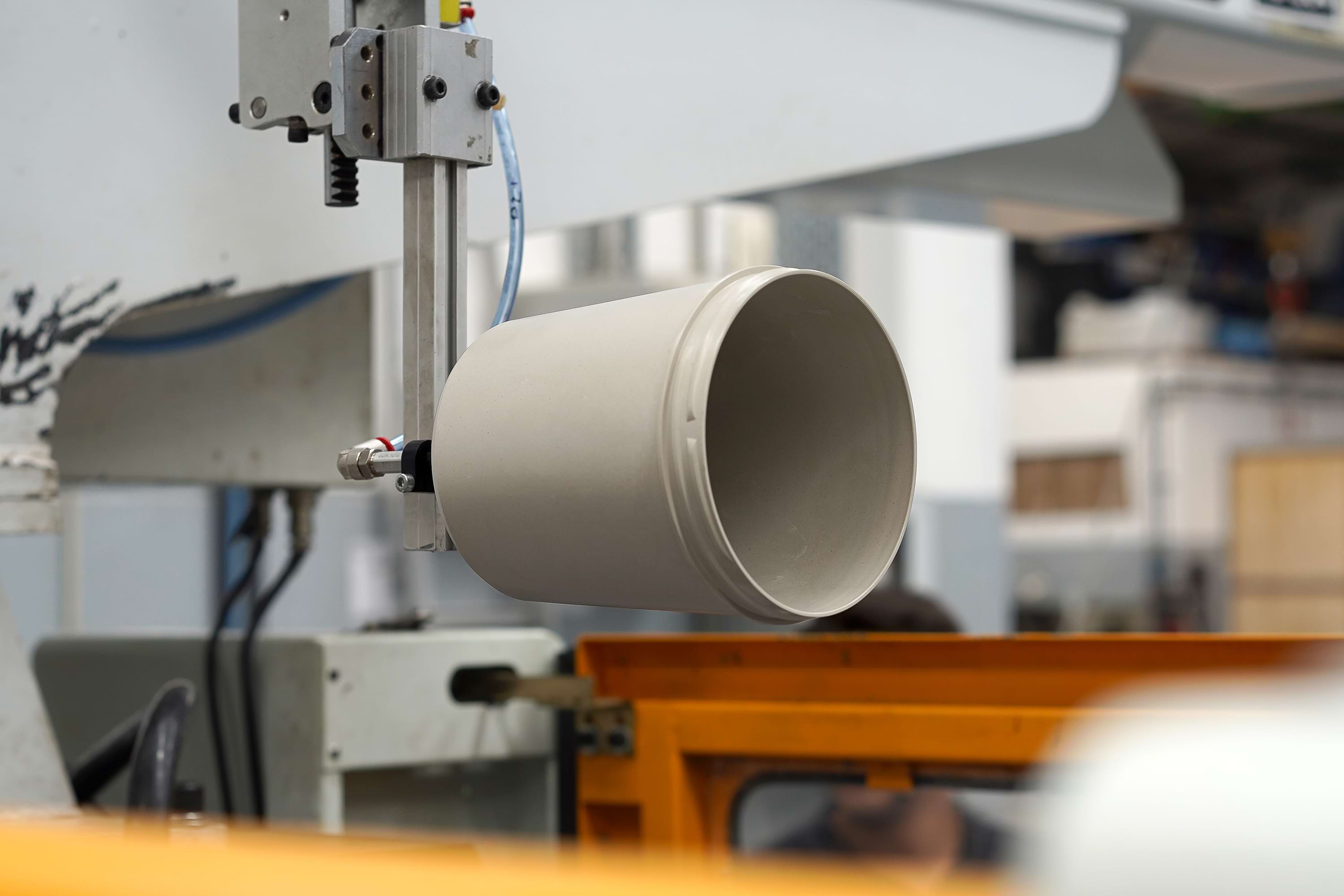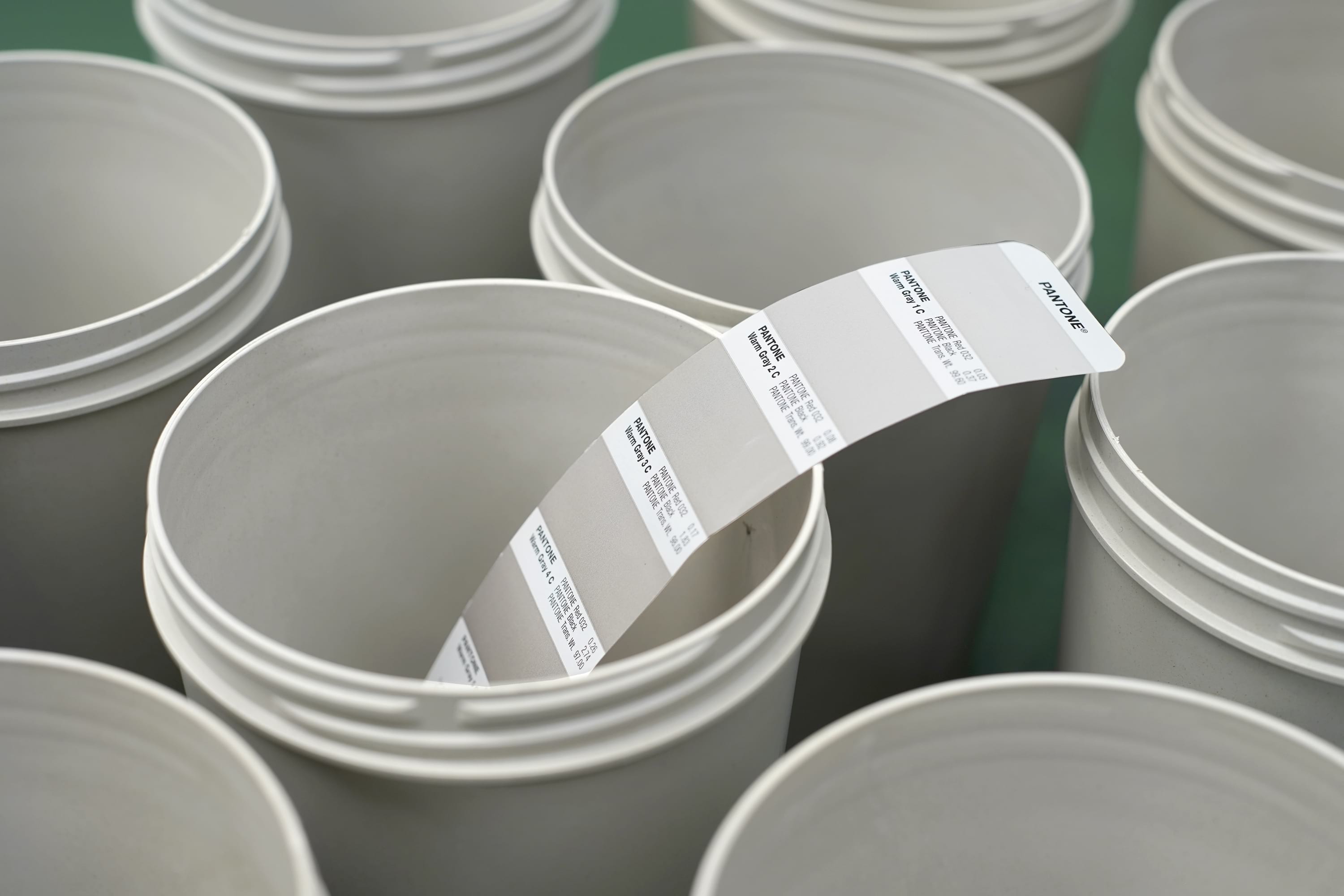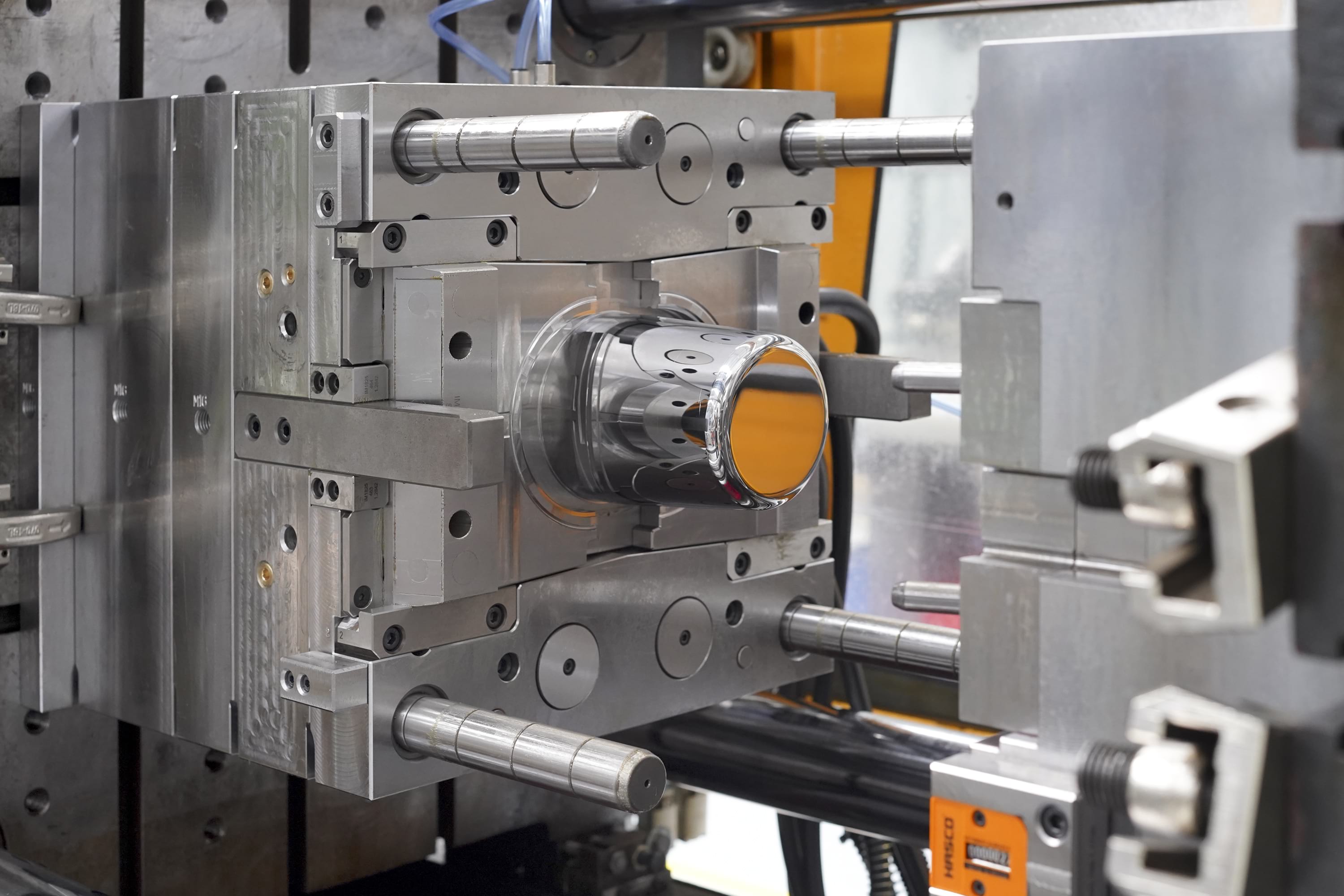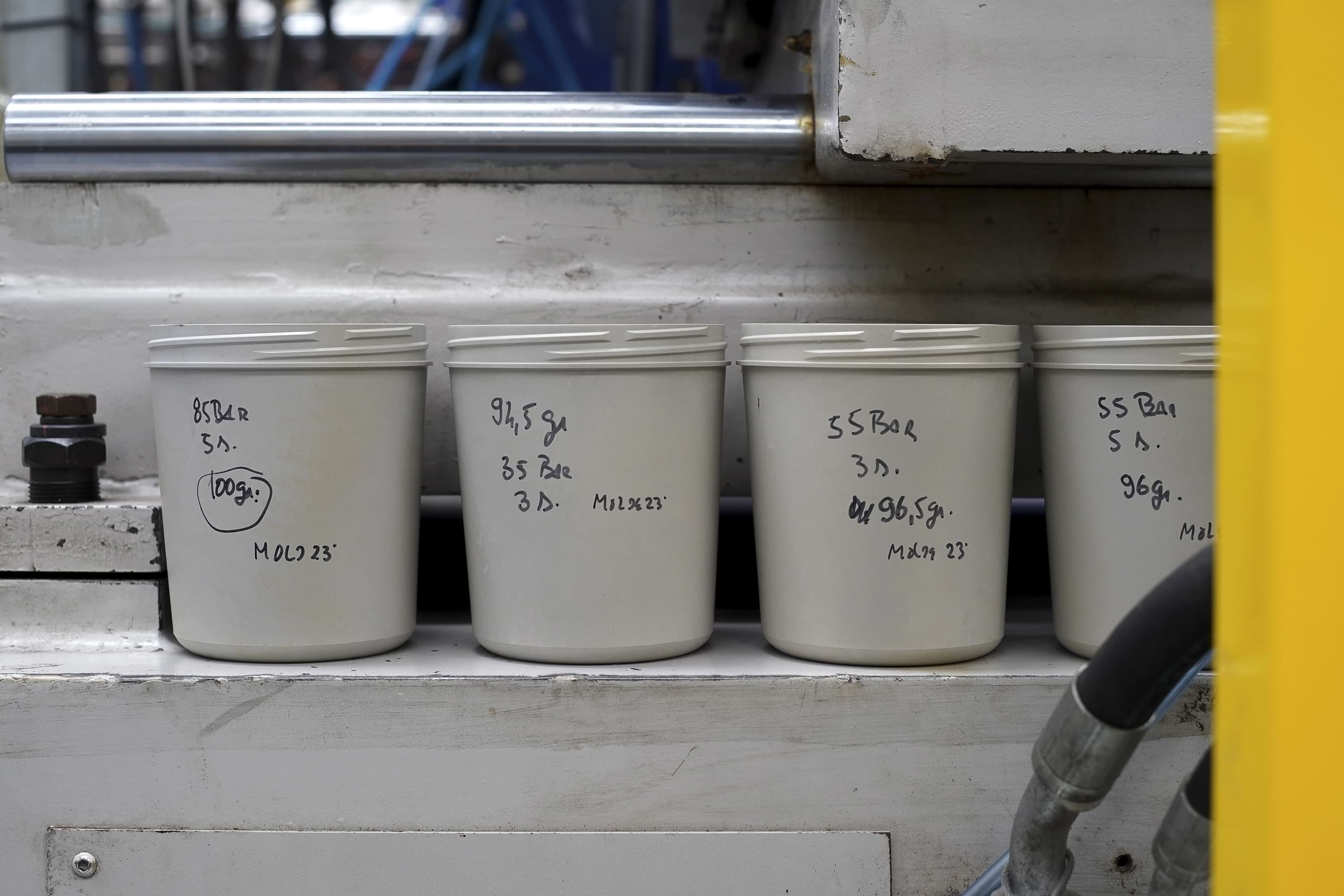Dizzie is on a mission to free the world from pointless plastic, making reusable packaging the new norm. Dizzie (formerly Good Club) is an online grocery delivery service, where the customer can have their monthly staples delivered to their door in reusable pots. These pots, designed by Blond, can be decanted, or stored; to later be collected, washed and reused by Dizzie.
Although it may seem to be a simple pot — the design challenge was extensive. The pots needed to be hard-wearing but still recyclable at the end of their life. They needed to be made from materials that could stand up to reuse and industrial dishwashers while being cost-effective to manufacture. It was important that a variety of sizes be available for the various food types, but on the other hand, too many could overcomplicate the service. Logistics added further challenges: the pots needed to stack together when not being used to save space in the warehouse and reduce the carbon footprint while transporting them. Finally, the pots needed to be designed in a way that would ensure simple and effective cleaning when returned to the Dizzie warehouse.
Early ideation uncovered a simple solution to a complex problem: nesting and tesselating pots. Inspired by the stacking format of a bento box, our design comprises of three sizes of pot (small, medium and large), designed to nest together when filled by being fractions of one another. For example, one large pot is equal to three small pots, and one medium pot is equal to two small pots. Not only does this help with shipping — it also helps the customer to keep an organised and clutter-free cupboard (if they choose to keep the pots, as opposed to decanting them).
Once decanted, the tapered sides of the pot allow the empty vessels to nest together more tightly, meaning that the consumer does not need to arrange collection for every order — further reducing the carbon footprint of the Dizzie service.
